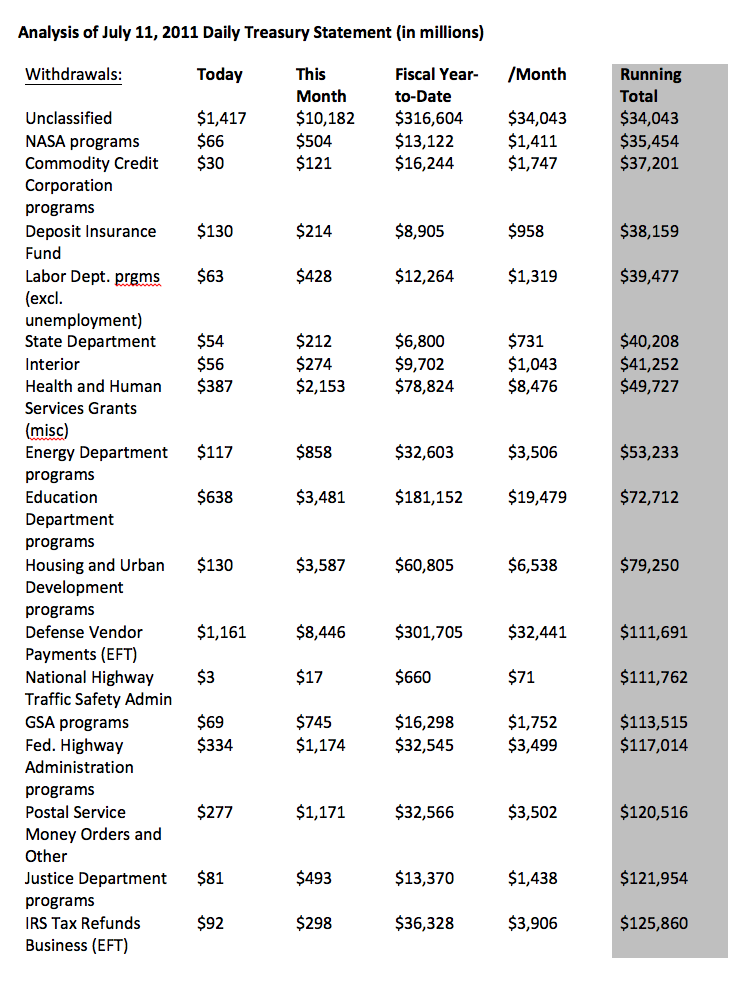Lee: After Vote, President Has Some Explaining to Do
Jul 19, 2011
Democrats and the Balanced Budget Amendment -- Day Lee Briefing 7/19/2011
Jul 19, 2011
Cut, Cap, Balance - Giving the President What He Wants and What He Needs
Jul 19, 2011
Pledge or Plunge -- Day Lee Briefing 7/18/2011
Jul 18, 2011
The Worst Recovery in Modern Times -- Day Lee Briefing 7/14/2011
Jul 14, 2011
Today’s Agenda
Senator Lee will give a floor speech on the Democrats’ refusal to propose a budget and his legislation to grow the economy, the Cut, Cap, and Balance Act. He meets with several Utah groups today, including the Utah Association of Elementary School Principals. He will appear on Fox’s “Your World” this afternoon.
From the Senator’s Desk
“Simply put, the approach of the Obama administration to get this economy on its feet again has been a patent failure. All the money spent trying to “stimulate” the economy has turned out to be counter-productive, sucking resources and capital out of the private sector and pouring them down the black hole of the federal government, while reducing individuals’ and businesses’ spending and hiring out of fear over rising debt and taxes.
“This is unquestionably the worst recovery in modern times. Still, the President continues to push for policies like tax increases that will further weaken our economy. The better approach to raising revenue is to grow our economy, not by raising taxes on America’s job creators.
“Along with 20 of my colleagues, I have proposed the “Cut, Cap, and Balance” Act, legislation aimed at growing our economy by reigning in government spending. The bill would reduce total spending next year by $142 Billion, set caps on spending over the next decade, and require Congress to pass a balanced budget amendment before it can raise the debt ceiling. Reducing our annual deficit and national debt will accomplish at least two things to help get our economy back on track: (1) decrease the “dead weight loss” of tax receipts as interest payments swallow an increasing larger share of total budget outlays and (2) lessen the “crowding-out” of private investment by large amounts of federal spending.” Obama’s “recovery” worst in modern times, Sen. Mike Lee
Recent Votes
On a motion to proceed to consider the Military Construction Appropriations bill, Senator Lee voted NAY. Senator Lee has called for the Senate to not proceed to any legislation unrelated to our looming national debt crisis.
Around the Water Cooler
Debt Deal: “Eric, don’t call my bluff.”
BBA: “A growing number of Republicans say Congress must pass a balanced-budget amendment to the Constitution before they will vote to raise the government's borrowing limit, creating a serious new wrinkle in the debt talks.”
A Look Ahead
Senator Lee is in Utah this weekend and returns to Washington on Monday.
Lee Demands President to Explain Social Security Threat
Jul 14, 2011
Lee Demands President to Explain Social Security Threat -- Floor Speech -- 07/14/2011
Jul 14, 2011
Going for the Jugular: President Obama Doesn't Have to Choose to Cut Social Security Benefits
Jul 13, 2011

No More Gimmicks -- Day Lee Briefing 7/13/2011
Jul 13, 2011
Today’s Agenda
Roll Call votes are expected today on the Democrats’ motion to raise taxes and on a motion to move to the Mil-Con Appropriations bill. Senator Lee is giving a speech to BYU interns this evening and hosts his weekly open house for constituents in the afternoon.
From the Senator’s Desk
“Madam President, the need has never been greater for us to avoid gimmicks. Gimmickry in this context can have very high stakes and can prove most detrimental to our economy and to the ability of our government to function. We have to look out for those gimmicks that would say we're going to make a few cuts now but most of the cuts we're going to propose in return for our ability to raise the debt limit will involve sacrifices by future Congresses, not the 112th Congress. We'll just make a few, but we'll say that the 113th and 114th and successive Congresses after that will make the difficult, necessary sacrifices. We can't do that. Nothing allows us to bind a future Congresses. That's why we need something that's gimmick free. That's why we need to amend our law of laws, the US Constitution, to place important meaningful permanent restrictions on the ability of Congress to engage in perpetual, reckless deficit spending, of the sort that is produced in national debt, now fast approaching $15 trillion.” Senator Lee’s floor speech, 7/12/2001
Recent Votes
On a sense of the Senate motion to raise taxes in the middle of a recession, Senator Lee voted NAY.
Around the Water Cooler
Jobs: “Between 2000 and 2010, the economy lost roughly 4 million blue-collar jobs — according to data from the Bureau of Labor Statistics — mainly as a result of manufacturing job losses, the housing crisis and the recession.”
Cut, Cap, Balance: “The plan — which would substantially cut next year’s projected deficit, institute statutory spending caps and require Congress pass and send to the states a balanced-budget amendment to the U.S. Constitution that has real teeth — is still the only serious proposal out there that would amount to a permanent fix.”
Debt Deal: “Absolutely not. Never.”
A Look Ahead
Tomorrow, several groups from Utah will be in Sen. Lee’s office, dealing with issues such as education and health care. Lee also had ENR and Judiciary mark ups and has a conference call with several Utah county commissioners to discuss land issues. He will appear on Fox’s “Your World with Neil Cavuto” to talk about the debt debate.
